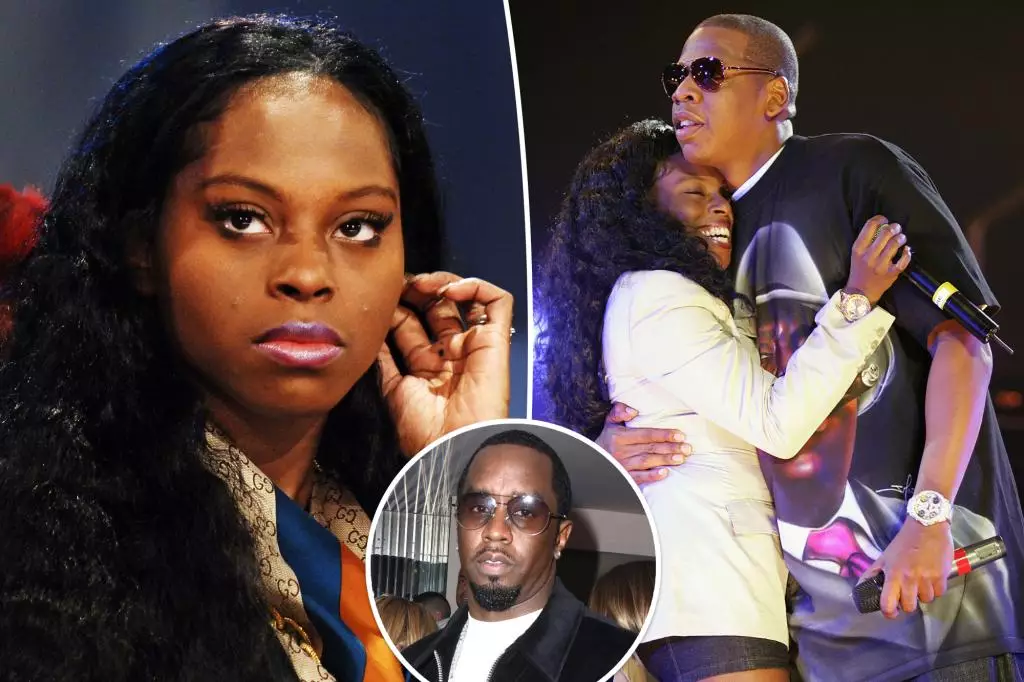Foxy Brown recently stirred up social media with cryptic Instagram posts that came on the heels of serious allegations against prominent rappers Jay-Z and Sean “Diddy” Combs. The messages, which included expressions of shock and a cold-faced emoji, fueled speculation among fans and followers about Brown’s sentiments regarding the accusations made in a civil lawsuit against the two hip-hop icons. Although her messages didn’t directly mention the lawsuit or elaborate on her thoughts, they were significant enough to catch the attention of the media and fans alike.
The lawsuit, which resurfaced allegations from an incident in 2000, claims Combs and Jay-Z were involved in the rape of a 13-year-old girl. Given the alarming nature of the accusations, many were curious about Brown’s ambiguous posts. The public has increasingly become accustomed to such twists and turns within the celebrity sphere, where insinuations often fuel rumors and conversations. Brown’s past collaborations with Jay-Z could complicate her response to such allegations, creating a challenging line for her to walk.
Jay-Z, now 55, has firmly denied the allegations, labeling them as attempts at blackmail orchestrated by the plaintiff’s attorney, Tony Buzbee. He emphasized his intention to confront the claims head-on rather than settle out of court. This approach speaks to the heated dynamics of celebrity culture where reputations are on the line and the stakes are incredibly high. Public figures often face intense scrutiny, making how they respond to accusations pivotal not just for their careers, but also for their public persona.
Diddy’s legal team echoed Jay-Z’s sentiments, dismissing the allegations as a publicity stunt. This robust denial from both parties highlights a common trend in celebrity culture—where there is an overwhelming tendency to rebut accusations, often without acknowledgment of the gravity of the claims being made.
Foxy Brown’s social media presence reflects the rapid dissemination of information (or misinformation) that characterizes today’s digital landscape. Her decision to remain vague in her messaging might lead to various interpretations, further enhancing the intrigue while allowing her to navigate the situation without fully aligning herself with either side. This strategy showcases how social media platforms act not only as channels for self-expression but also as battlegrounds for public opinion and celebrity narratives.
In a previous instance, Brown publicly rejected claims she had signed a non-disclosure agreement regarding her connection with Jay-Z, indicating her willingness to defend her story. Her assertive stance highlights a broader cultural shift where women in the entertainment industry are voicing their truths. By sharing her thoughts and experiences, they push against established narratives, often forcing public figures to confront the realities of their pasts in a more exposed setting.
As this drama unfolds within the hip-hop community, the interconnections between artists become even more complex. Allegations, denials, and social media commentary create a multifaceted dialogue that influences how fans and followers perceive their favorite celebrities. The implications of this situation extend far beyond individual reputations; they shape the broader cultural narrative around accountability, transparency, and the humanity behind the celebrity façade. As Foxy Brown, Jay-Z, and Diddy navigate these troubled waters, it remains to be seen how their legacies will be affected in this era of heightened scrutiny and social discourse.

